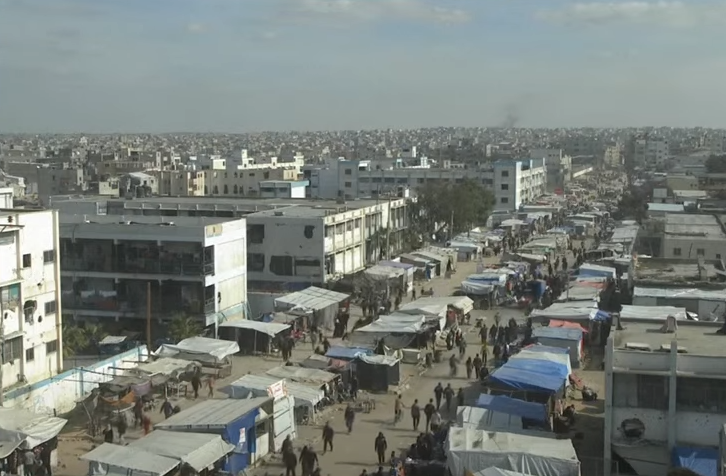Israel’s government has approved a controversial ceasefire and hostage release deal with Hamas, brokered by Qatari mediators. The agreement, which takes effect on Sunday, will see the release of 33 Israeli hostages in exchange for hundreds of Palestinian prisoners held in Israeli jails. This deal, reached after intense negotiations, marks a pivotal moment in the ongoing conflict but raises significant concerns about its long-term implications.
The Ceasefire Agreement: Key Details
Under the terms of the deal, the first phase will span six weeks and involve the release of civilian women, female soldiers, children, the elderly, and sick or wounded civilians. In return, Israel will release Palestinian prisoners, including individuals convicted of serious crimes.
As part of the ceasefire conditions, Israeli forces will withdraw from densely populated areas of Gaza, allowing displaced Palestinians to return home. Additionally, hundreds of aid trucks carrying much-needed supplies such as food, medicine, and fuel will be allowed into the territory each day.
Negotiations for a second phase will commence on the 16th day of the ceasefire, aiming to facilitate the release of remaining hostages and a complete withdrawal of Israeli forces. The final phase will focus on the reconstruction of Gaza, an undertaking expected to take years, along with the return of any remaining hostages’ bodies.
Political Divisions and Security Concerns
The deal has sparked deep divisions within the Israeli government. Prime Minister Benjamin Netanyahu, while defending the agreement as a necessary step to secure the release of hostages, faces significant opposition from far-right ministers. National Security Minister Itamar Ben-Gvir has voiced strong opposition, calling the release of “life-sentenced terrorists” a dangerous concession. Finance Minister Bezalel Smotrich echoed these concerns and has threatened to withdraw from the government if the war does not resume after the first phase ends.
On the other side, hostage families remain anxious about the possibility that their loved ones will be left behind if the later phases of the deal do not materialize. “For 469 days, our loved ones have been abandoned in captivity, and now, finally, there’s hope,” said Einav Zangauker, whose son was abducted from Kibbutz Nir Oz. “This agreement must be followed through to the end, to bring everyone home and end the war.”
The Cost of the Deal
While the release of hostages is a moment of relief and hope, the cost of the agreement is undeniably high. Releasing convicted terrorists poses a significant threat to Israel’s security, and many believe Hamas will exploit the ceasefire to regroup and rearm. The memory of past deals, where released prisoners returned to terrorism, looms large over this decision.
Security experts warn that the ceasefire could provide Hamas with an opportunity to rebuild its operational capabilities, prolonging the cycle of violence. “We would never release 3,000 terrorists in exchange for anything,” said conservative commentator Mark Levin. “This deal sets a dangerous precedent that undermines Israel’s long-term security.”
Trust in Leadership
Despite concerns, trust remains strong in leaders like Netanyahu and U.S. President Donald Trump, who has consistently supported Israel’s security efforts. Netanyahu has emphasized that the deal was made with careful consideration of Israel’s national interests and future strategic goals. Trump’s first-term foreign policy achievements demonstrated a commitment to Israel that many conservatives believe should be the guiding principle in handling such delicate negotiations.
The Broader Implications
This ceasefire deal highlights the complex dynamics of the Israel-Hamas conflict. While the immediate humanitarian benefits cannot be ignored, the long-term security challenges it poses are considerable. Israel’s ability to navigate these challenges while maintaining its national security will be critical in the coming weeks and months.
As the situation unfolds, it remains to be seen whether Hamas will honor the terms of the agreement or use it as a strategic pause before resuming hostilities. For now, the hope is that the hostages return safely and that Israel remains vigilant in protecting its people.
WE’D LOVE TO HEAR YOUR THOUGHTS! PLEASE COMMENT BELOW.
JIMMY
Find more articles like this at steadfastandloyal.com.
h/t: Steadfast and Loyal


Mossad needs to hunt down the HAMAS upper echelon and have a long conversation with each one.